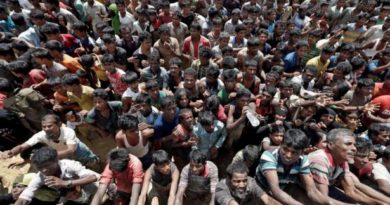EDITORIAL: Weigh wage hike carefully
EDITORIAL – COLUMNIST
The Prayut Chan-o-cha government, which was officially sworn in this week, will have to weigh carefully the demand by labour leaders for the daily minimum wage to be raised to 400 baht.
The 400-baht hike was one of the poll campaign promises made by the Palang Pracharath Party (PPRP) ahead of the March 24 general election in a bid to woo voters. Labour bosses have come out to remind the PPRP, as the core coalition party, to honour its pledge or face a legal challenge. Given this tough stance, other sections of society are holding their breath as they fear a slew of adverse impacts from the increase, including higher living costs while a rise in goods prices would inevitably hurt the country’s competitiveness.
The Federation of Thai Industries (FTI) on Tuesday issued a warning that there would be a detrimental impact on small and medium-sized enterprises (SMEs) if the government decides to go ahead with the wage hike.
It emphasised the economy is not in good shape at all and a wage increase would certainly take its toll on SMEs while any adjustments must be in response to the economic conditions holding sway in each province.
Business operators, meanwhile, have urged the government to take into consideration a decision by the tripartite committee on labour and avoid the sharp increase promised during the election campaign. For 2019, the tripartite committee representing employers, employees and the government agreed to increase the daily minimum wage by 2-10 baht from 308-330 baht, depending on the province and location. It is reported the new top rate will stand at 335 baht a day, up from an average of 325 baht.
However, the Thai Labour Solidarity Committee has not backed down on its wage hike demand. Instead, the labour body has encouraged the state to step up efforts to rein in rising prices to ensure workers really benefit from wage boosts.
That’s precisely the point. The state has never successfully curbed goods prices after increasing minimum wages in the past while subsequent rises in the cost of living have had far-reaching impacts on other sectors, especially people on fixed salaries.
Many remember when the Yingluck Shinawatra government kept its promise, raising the minimum wage drastically to 300 baht. This formed part of that ill-fated administration’s huge package of populist policies that propelled it to power in the 2011 election.
Meanwhile, the state should not think it can simply be idle and leave labourers out in the cold. On the contrary, it is vital that the government offer help in the form of welfare packages, which should cover debt repayment support, healthcare, and savings, in order to alleviate hardship immediately.
At the same time, the state must make serious efforts to reskill the country’s workers so future wage hikes are justified.
Finance Minister and PPRP leader Uttama Savanayana appears well aware of the impact of the party’s wage policy, as he been encouraging the discussion of a progressive adjustment of wages along with a push to improve workers’ skills.
The state, in particular Labour Minister Chatumongkol Sonakul, must hold talks with labour groups to seek an acceptable compromise for all and look at other options, including the minimum guaranteed salary proposal of the Democrats, which would ensure improved livelihoods for workers and maintain the country’s competitiveness.
EDITORIAL
BANGKOK POST EDITORIAL COLUMN










